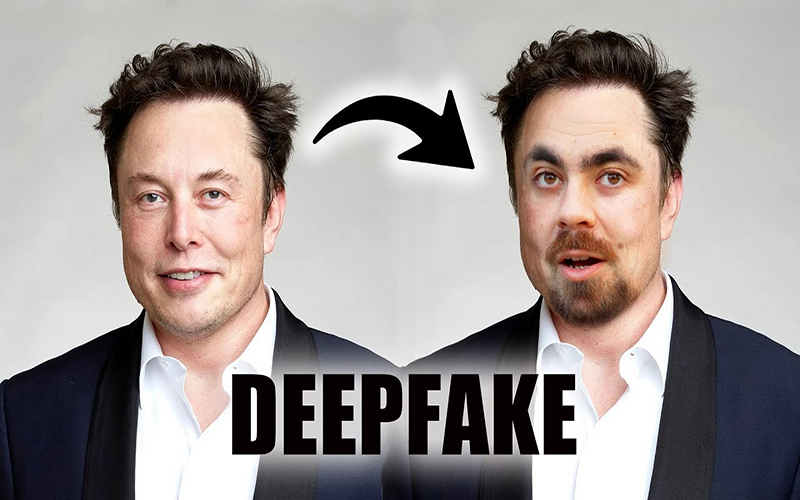As the digital wave sweeps across the globe, AI has rapidly evolved, from smart voice assistants to highly accurate recommendation systems, reshaping everyday life. But like any powerful technology, AI comes with the risk of misuse. Deepfake technology, in particular, poses serious security challenges and is becoming an alarming threat in the digital realm.
From Curiosity to Threat: The Rise of Deepfake Technology
The term “Deepfake” combines “deep learning” with “fake”, representing a major branch of AI focused on using deep neural networks to generate synthetic content. In 2017, a Reddit user named “deepfakes” released a manipulated video that superimposed a celebrity’s face onto an adult performer’s body, propelling the technology into the public eye. Since then, deepfake techniques have advanced rapidly, enabling the realistic transfer of facial features, expressions, and voices onto other individuals, creating compelling fake images and videos.
Initially, deepfakes were used for lighthearted entertainment and parody videos. But it wasn’t long before malicious actors recognized their potential for criminal purposes, including fraud, defamation, and the spread of misinformation. AI face-swapping scams have caused significant personal financial losses. Deepfake political videos have misled public opinion. Even more disturbingly, explicit fake videos targeting women have emerged, gravely violating privacy and public order. In one country, a major incident involved men using paid chat groups to share pornographic deepfake images of women, sparking national outrage.
Lenovo’s Response: The “Deepfake Detection Tool”
In response to the growing misuse of deepfake technology, Lenovo has launched the”Deepfake Detection Tool,” leveraging its technological strength and industry insight to offer a robust solution for identifying manipulated content in the digital space.
Built on the powerful open-source DeepSeek AI model, the detection tool maximizes the model’s deep learning capabilities and broad applicability. To ensure data security and user privacy, the tool runs locally on Lenovo’s AI PCs without requiring cloud connectivity, eliminating transmission risks and dramatically improving speed. It can scan and analyze an image or video in five seconds, providing automated analysis and real-time feedback.
Technically, the tool employs advanced deep learning algorithms to conduct a thorough, multi-layered examination of visual and audio content. By constructing sophisticated neural network models, the system learns to detect subtle differences between authentic and manipulated faces, such as skin texture, eye-blinking patterns, and natural muscle movement. While these discrepancies may escape human observation, the algorithm captures them with high precision. Trained on vast datasets, the tool achieves a deepfake detection accuracy of up to 96%, offering reliable results.
Real-World Applications and Impact
Lenovo’s deepfake detection technology delivers powerful results across various use cases, significantly enhancing user security.
In video conferencing, which has become a staple of remote work and digital communication, fraudsters may impersonate executives or partners using deepfakes to infiltrate meetings and steal confidential information. Lenovo’s tool can scan participant feeds in real time, issuing immediate alerts if AI-generated content is detected, safeguarding business secrets and ensuring operational security.
On social media platforms, where videos go viral quickly, deepfakes spread misinformation, incite defamation, and disrupt platform integrity. Lenovo’s tool can automatically scan uploaded videos, flagging suspect content with high accuracy. This helps users verify content authenticity and supports platforms in moderating harmful media, preserving trust and stability in the digital ecosystem.
For individual Lenovo AI PC users, the tool offers seamless, round-the-clock protection. Whether they are working with documents, analyzing data, watching videos, or gaming, the system continuously monitors for deepfake threats and provides instant alerts—no manual input required. This creates a secure, user-friendly digital environment integrated into every aspect of PC use.

Collaboration and Innovation: Advancing Anti-Fraud Technology
To bring the deepfake detection tool to life, Lenovo collaborated with leading research institutions and technology companies. Academic partners contributed cutting-edge theoretical research and algorithm optimization, while tech firms provided advanced hardware and development support. This synergy enhanced both performance and functionality, accelerating innovation in AI-based fraud detection and laying the groundwork for a resilient digital defense infrastructure.
Balancing Technology and Responsibility
Lenovo’s deepfake detection solution isn’t just a technical milestone—it’s a statement of social responsibility. As AI continues to evolve, maintaining a balance between innovation and ethical responsibility becomes crucial. Lenovo embraces a “human-centered intelligence” philosophy, aiming to serve humanity through AI development and product design.
From a user protection standpoint, the tool acts as a digital shield against AI scams, including financial fraud, identity theft, and reputational harm. It reassures users that they can engage with smart devices and online services without falling victim to deepfake deception, enhancing their quality of life and digital trust.
For businesses, the tool ensures authenticity in identity verification and communication. By accurately identifying AI forgeries, companies can prevent fraud, protect trade secrets, reduce operational risk, and strengthen their competitiveness and long-term resilience.
At the societal level, Lenovo’s anti-fraud AI tools play a vital role in upholding public trust and order. The proliferation of AI-driven scams could lead to widespread distrust in digital media and institutions. Promoting advanced detection tools helps suppress this threat, restore confidence in technology, and foster a safer, more harmonious, and sustainable society.
As deepfake fraud becomes increasingly prevalent, Lenovo’s Global Security Lab team, building on the DeepSeek model, is determined to develop what could be described as a digital “truth mirror” to reveal AI-generated falsehoods. In this ongoing battle between authenticity and deception, Lenovo engineers continuously innovate to protect the integrity of the digital world.
Lenovo recognizes that winning this war against AI-driven deception requires collective action. Through collaboration with fellow innovators and industry leaders, Lenovo is helping to forge a powerful digital defense. With this shared commitment, AI can remain a force for good—a light that illuminates our lives rather than a weapon for manipulation.
With the combined efforts of responsible tech enterprises, the future of our digital world will undoubtedly be safer, smarter, and more secure.












